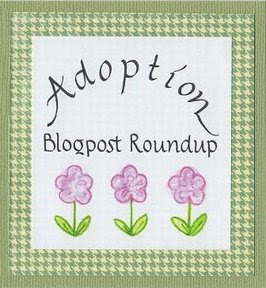 It can come out of nowhere, and flatten like roadkill. Or it can send out little signals: The chaos, the irritibility, the restlessness, the scalp prickling and pulling tighter than a bongo. Then the tears start falling on the inside ... and (finally, mercifully) on the outside, where they start to do some good.
It can come out of nowhere, and flatten like roadkill. Or it can send out little signals: The chaos, the irritibility, the restlessness, the scalp prickling and pulling tighter than a bongo. Then the tears start falling on the inside ... and (finally, mercifully) on the outside, where they start to do some good.If you're prone to depression, knowing when and how to get help is imperative not only for your own peace of mind, but for that of your entire family. One book I've found especially helpful is Kathleen Hockey's Raising Depression-Free Children, which offers practical help not only on how to keep your kids healthy, but how to stay healthy yourself. The second half of this is every bit as important as the first, since the stresses of parenthood combined with the intimacy of family life makes putting on a "brave face" next to impossible.
In her book Raising Depression Free Children, Kathleen Hockey identifies four aspects of effective treatment for depression, whether the sufferer is a child or adult: medical, psychological, environmental, and spiritual (p.81). Some people try to treat depression with just one of these -- but, as Hockey points out, the four factors cannot be separated if the sufferer wants to get completely well.
Admitting you need help is the first (and often hardest) step. When I was a kid, my mother used to suffer from (what I now recognize were) depressive episodes and migraines. She battled it alone, afraid to admit that anything was wrong. "I just sing hymns till the blues go away," she'd say. But we all knew better, having been on the receiving end of the effects of the disease. We promised ourselves that when the time came, we would handle it differently. For our children's sake, as well as our own.
If you struggle with depression, it doesn't mean you're crazy or that you're spiritually defective. In the January/February 07 issue of Canticle, Hockey contributed a wonderful piece on St. Elizabeth Seton, who struggled with depression for most of her adult life. (You can order a copy of this issue by calling 800-558-5452.) God gives each of us a burden to carry in this life, which forces us to lean on Him for strength and grace. He also sends points of light and hope, to ease the load when we begin to stumble. Just as Simon of Cyrene helped Him to carry His cross, He sustains us when the load becomes to difficult to carry alone. That sustenance comes in many forms: the healing graces of the Eucharist, the sympathetic ear of a trained professional, or a timely insight from a blog you stumbled on "by chance."
Whether the source of your depression is hormonal (such as post-partum depression), environmental (stress-related), physiological, or spiritual, know that you are not alone in your suffering, and that help is available. Your "blue moon" will pass, and you will see the sun again.
Mother Mary, Our Lady of Sorrows, you see your daughters wandering in the dark. Pray for us, that when we are weak your Son will strengthen us. That in our sorrow, He will be our purest source of joy. In the name of the Father, and the Son, and the Holy Spirit, Amen.












 My StumbleUpon Page
My StumbleUpon Page



 border="0">
border="0">
















1 comment:
Heidi,
I commend you for writing such a poignant piece on confronting depression; it is an infliction affecting 55% of all Americans.
The more we confront it and recognize the need for help, the easier it will be to treat it.
Thanks for writing this.
Post a Comment